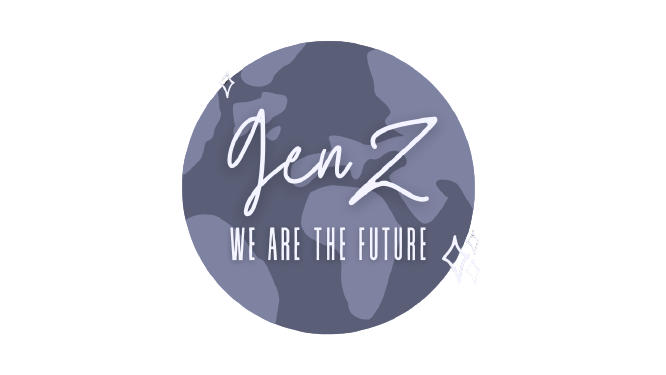The Racism that Lurks Behind the Russia-Ukraine War
By now we have all heard about events taking place between Russia and Ukraine, and we are all constantly checking for updates and hoping for the best. With all that is happening it is clear that the focus should be on finding a solution to the problem, and maintaining the safety of all people. But even in situations of this magnitude, racism and white supremacy find a way into what is going on. From stories of African students facing discrimination at borders to the media’s racist sentiments in their coverage, there is a lot going on. While we get into this, please note that this is not meant to voice opposition against Ukraine, but rather to call attention to problems arising from this situation and call them out
To cut a long story short, the issue all starts with the Russian president, Putin’s issues with NATO, and the Ukraine planning on joining NATO. According to The New York Times, Putin clearly intends on drawing Ukraine back under Russia’s influence (Nagourney, 2022). On February 24, 2022, Russia began its invasion of Ukraine after months of its troops being on Ukraine’s borders. With this invasion, many residents of Ukraine were left with the option of fleeing to wherever they could find refuge. In this group of residents finding a way out are also African immigrants who are having a harder time leaving.
According to numerous sources, many immigrants in Ukraine are being held up at borders and are not being allowed out. And while they are being blocked out, the Ukrainians are being let through. Many Africans have made reports of the harsh treatment they have faced as they were barred from entering trains which could grant some exit for them. So as the Ukrainians were easily let through, the Africans were left there, in the cold, without food and shelter to wait. These accusations were denied by Ukraine deputy interior minister, Anton Heraschenko, with him saying that foreigners were not being held from leaving and that women and children are to be let out first. However, according to Chineye Mbagwu, a Nigerian doctor living in Ukraine who had to face these struggles, when a black woman tried to go through, the response would be, “Our women first,” (Maclean, 2022).
It might also be important to note that the reports made by African foreigners were not the same for Pakistani, Afghan, Moroccan, or Vietnamese foreigners, who reported that their only negative experiences were long lines. There are also concerns with the other sides of the borders. There have also been reports of Nigerians being denied entry into Poland, although other foreigners have been given entry. Like the Ukraine accusations, these have been denied by the spokesperson of the Polish prime minister. Though the governments of these countries have rejected the accusations, it still stands that several African foreigners are reporting their terrible treatment at the borders, which for some even include being beaten. These accusations cannot be coming out of nowhere and from nothing.
It is terrifying that even as tanks like the one pictured above roll through foreign countries, racism still finds a way to ruin lives.
Another issue that surfaces in the Ukraine situation is the racist media coverage by journalists. One can definitely say that this situation has brought up conversations about countries in the Middle East and Africa that have faced similar situations and crises, influenced by some of the global superpowers, but unlike Ukraine were not given half the undivided attention, and unanimous support that they have. Many white reporters and journalists have shared their own takes on this, except with them expressing their surprise to see events like these unfolding in “somewhere like” Ukraine. Many are in a state of disbelief over the fact that this is happening in a white, European country, and not somewhere in the Middle East (aka countries with large brown populations). Many journalists have claimed their shock to see this happening in areas of civilized people and not in some developing third world country. The former deputy prosecutor general of Ukraine, said himself on BBC that he got emotional seeing Europeans with blue eyes and blond hair being killed (Jones, 2022). Trevor Noah, host of the Daily Show, was quick to call out not only the utter racism of this all but also the hypocrisy in their surprise of events like this occurring in Europe, when European countries are known to often be involved in wars and disputes since the beginning of their histories. The coverage of these events by the media, show how our society is designed to sympathize more with white people whenever a misfortune strikes them than with BIPOC communities. Ukrainian refugees are welcomed and supported while black and brown refugees are villainized and hated (oftentimes by groups that played a role in them becoming refugees). When a situation like this hits a white country it is a tragedy, but for nonwhite countries it is simply in their nature and expected.
It is shocking that even in a situation as serious as this, time is still found for people to discriminate and spread their racist sentiments. We should be advocating for the safety of all people and for peace, but instead we find ways to further enforce hierarchies into our society that harm people, particularly people of color. During this time we should reflect on some of the things we have picked up from society and whether or not white supremacy has ingrained itself in them, whether through your thoughts or the thing itself.
SOURCES:
What Does Russia Want in Ukraine? A Full Guide [The New York Times]
What does Putin want in Ukraine? The conflict explained [CNN]
Africans Say Ukrainian Authorities Hindered Them From Fleeing [The New York Times]
Russia-Ukraine media coverage is exposing white pundits' biases [MSNBC News]
Trevor Noah slams media for racist Ukraine/Russia coverage [Los Angeles Times]

